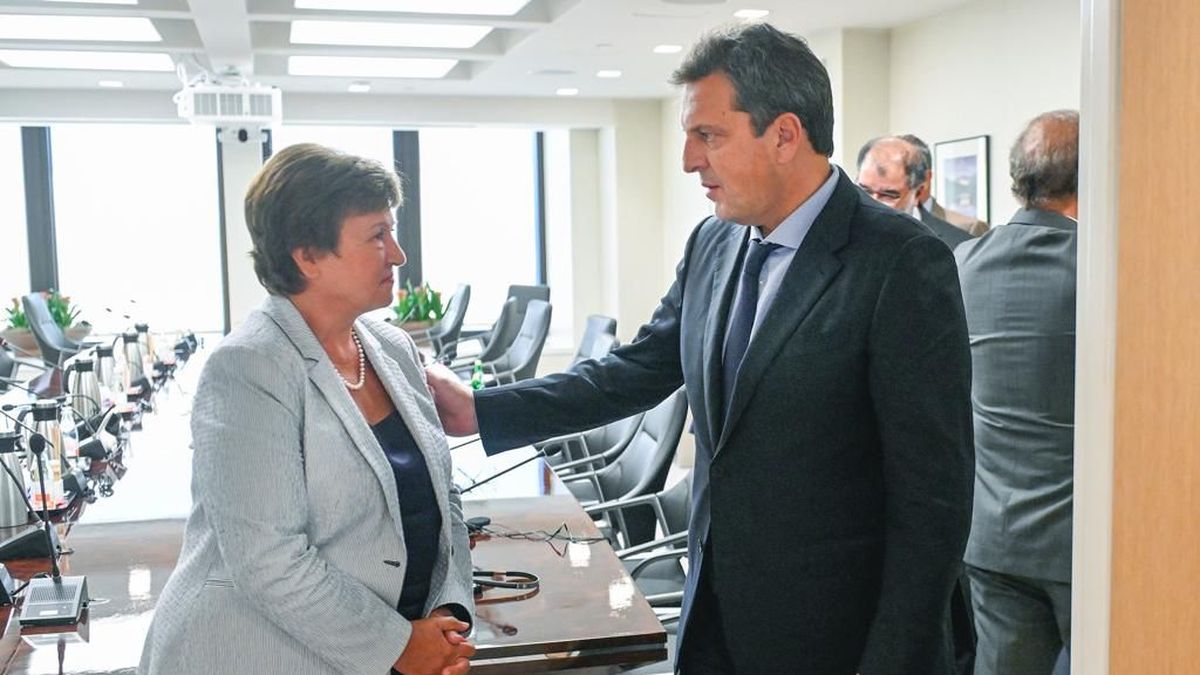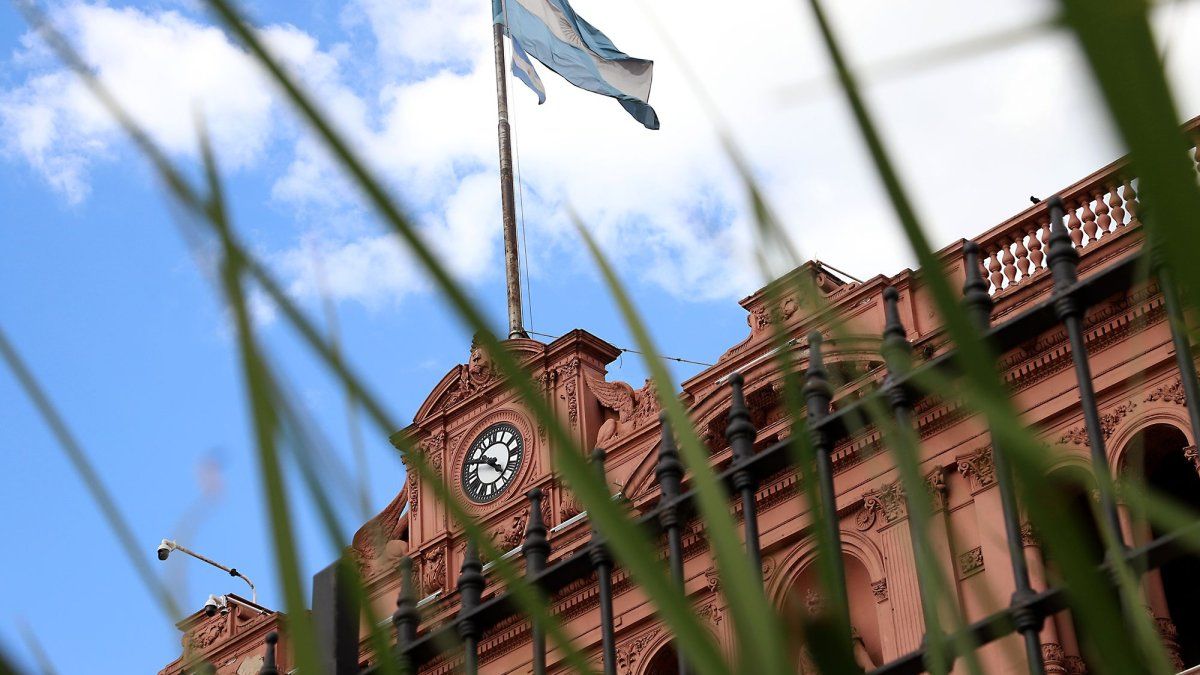At 9 p.m. he International Monetary Fund (IMF) released the full statement after yesterday’s board meeting in which the disbursement of US$ 7,500 million was approved. He points out that “the main objectives of the program were not achieved, as a consequence of the unprecedented drought and policy deviations.” He adds that “in a context of high inflation and increasing pressure on the balance of payment, a new package of measures was agreed on, focused on strengthening reserves and reinforcing fiscal order.”
The head of the IMF Kristalina Georgievapointed out that “against high inflation and growing balance of payments pressures as a backdrop, the authorities are implementing a new set of measures to guarantee stability and underpin external viability in the medium term, and focused on replenishing reserves and improve fiscal order”.
reiterate that it is “essential” to achieve the agreed primary fiscal deficit of 1.9% of GDP, an objective that is difficult to achieve due to the drop in export duties caused by the drought. The imbalance currently stands at 2.7% of GDP, according to calculations by the ACM consultancy.
The owner of the Fund specified that the government should focus “efforts” on:
- reinforce spending controls with initial measures aimed at updating energy rates
- contain public salaries and pensionswhile continuing to protect priority spending on social programs and infrastructure.
In addition, he considered that these measures are being complemented with temporary increases in taxes on imports to compensate for the loss of income.
In what was interpreted in the Palacio de Hacienda as an endorsement of the latest measures adopted, Georgieva maintained that “The recent exchange rate realignment, coupled with monetary policy tightening, should continue to help promote reserve accumulation while limiting the pass-through effect of the exchange rate on inflation.”
markets
Regarding the future of the exchange policy, the head of the IMF said that “
- The exchange rate adjustment rate will be carefully calibrated to facilitate compliance with the reserve accumulation and inflation reduction objectives,
- Real interest rates will remain at duly positive levels to continue supporting the demand for assets in pesos.
- Financial and futures market interventions will also be limited and temporary, and will focus on correcting disorderly conditions.
- Multiple exchange rate practices, exchange restrictions, and capital flow management measures will be phased out as conditions permit, as they are not a substitute for sound macroeconomic policy.
Fiscal policy
The Argentine authorities and the staff of the Fund agreed that in subsequent years “fiscal consolidation will be accelerated with high-quality measures focused on spending and revenue.” The importance of promoting exports is also recognized and in this sense, Georgieva described the completion of the gas pipeline as “a positive event”.
As usual, he reiterates that it is “continued attention needs to be paid to protecting the poor and promoting inclusive growth as imbalances are corrected”.
Finally, it warns that “it continues to be crucial to have broad political support and that the program is assumed as its own in the short and medium term, since to solve the profound challenges that Argentina is facing will require the efforts of future governments” .
In principle, This Friday the staff report would be released, an extensive report where the team analyzes the Argentine situation and presents its observations.
A summary of this statement was released on Wednesday afternoon, anticipating an immediate disbursement.
After four months of arduous negotiations finally the government managed to disburse the IMF and during that time the negotiations had tense moments not without anger.
In the meeting held by the head of the IMF and the Minister of Economy, the question of multiple exchange rates was addressed, as it could not be otherwise. There was agreement on the need to go for a simplification, but not at this time amid electoral uncertainty and shortage of reserves.
Massa defended his differential exchange rate scheme for agricultural products that allowed him, he maintained, to rebuild 1.8 billion dollars in reserves and reverse the previous deficit situation.
The evaluations of the Ministry of Economy show that, once the drought has been overcome and with the commissioning of the Néstor Kirchner gas pipeline, next year the country will have a large trade surplus. It should be noted in this regard that the IMF initially underestimated the effects of the drought in the country. In order not to be wrong again, it was learned that he has contracted a specific study on the prospects of the Argentine harvest.
Unlike its predecessor, Martin GuzmanMassa at no time raised the issue of overcharges paid by Argentina for credits.
An important piece of information, which is discussed in the Palacio de Hacienda, is that the salary of the agency’s directors (between 14,000 and 16,000 dollars) is covered precisely by these surcharges. By the way, the Fund is currently discussing the possibility of an increase in the remuneration of directors, which Argentina will vote against.
The Board’s decision allows for an immediate disbursement of about US$7.5 billion (5.5 billion SDRs), bringing total disbursements under the agreement to about US$36 billion. The next review is scheduled for November 2023.
Source: Ambito




